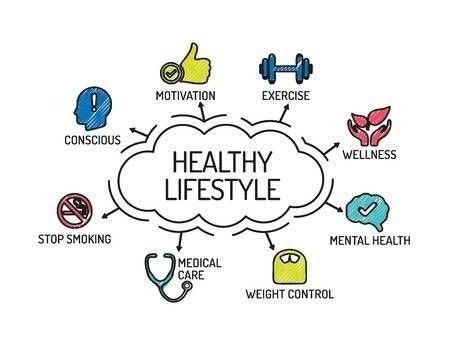
In today's fast-paced world, the connection between lifestyle choices and mental health is becoming increasingly clear. Diet, physical activity, sleep, and substance use significantly influence our mental wellbeing, serving either as protective factors against mental health challenges or as potential triggers for them. This blog post delves into how these lifestyle factors impact our mental health and offers practical advice on making choices that support psychological wellbeing.
The Role of Diet in Mental Health
Nutrition plays a crucial role in brain health, affecting everything from cognitive function to emotional stability. Foods rich in essential nutrients such as omega-3 fatty acids, vitamins, and minerals can boost neurotransmitter function, which in turn helps regulate mood. For example, omega-3s, found abundantly in fish like salmon, have been linked to reduced rates of depression and anxiety. Conversely, diets high in processed foods and sugar are associated with higher risks of mental health disorders.
Tip: Incorporate a variety of whole foods into your diet, including fruits, vegetables, lean proteins, and whole grains, to support a healthy mind.
Physical Activity as a Mental Health Booster
Exercise is not just about physical health; it's a powerful antidepressant and anxiolytic. Regular physical activity can elevate endorphin levels, often dubbed 'feel-good' hormones, and reduce the stress hormone cortisol. Studies consistently show that people who maintain regular workout schedules experience fewer symptoms of depression and anxiety than those who are less active.
Tip: Aim for at least 30 minutes of moderate exercise most days of the week. Activities like walking, cycling, or yoga can be particularly beneficial for mental health.
Sleep: The Foundation of Mental Wellbeing
Sleep and mental health are deeply interconnected. Lack of adequate sleep can lead to irritability, increased stress responses, slowed thinking, and poorer emotional regulation, whereas a good night's sleep has been shown to improve problem-solving skills and enhance memory. Sleep disturbances are common among those with mental health disorders, and addressing these issues can often improve other symptoms.
Tip: Establish a regular sleep routine, avoid caffeine and electronics before bedtime, and create a comfortable sleep environment to promote better sleep quality.
The Impact of Substance Use on Mental Health
Substance use — whether it's alcohol, nicotine, or other drugs — can have profound effects on mental health. While some people may use these substances as a way to relieve stress or feel better temporarily, regular or heavy use can significantly worsen mental health, leading to issues such as depression, anxiety, or even substance use disorders.
Tip: If you're struggling with substance use, seeking help from a professional can be a critical step towards recovery. Additionally, engaging in healthy stress-relief activities, such as exercise or mindfulness, can reduce the need to use substances as coping mechanisms.
Conclusion
Understanding the link between lifestyle choices and mental health is key to fostering wellbeing. By making informed decisions about diet, exercise, sleep, and substance use, we can better manage stress, enhance our mood, and reduce the risk of mental health disorders. Start small—any positive change in one of these areas can lead to improvements in your overall mental health. Remember, it's about progress, not perfection.
References:
https://www.ncbi.nlm.nih.gov/pmc/articles/PMC9794932/
https://harbormentalhealth.com/2022/02/02/diet-exercise-sleep-and-mental-health/
https://bmcpublichealth.biomedcentral.com/articles/10.1186/s12889-018-5526-2